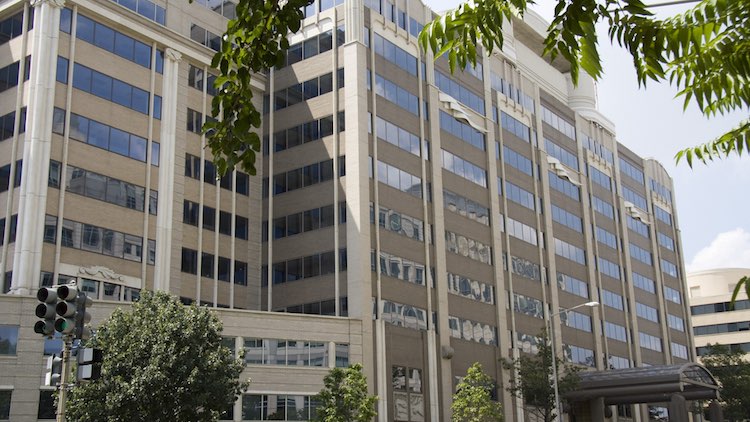FCC's Pai Gets Pushback on Lifeline Eligibility Rollback

The smarter way to stay on top of broadcasting and cable industry. Sign up below
You are now subscribed
Your newsletter sign-up was successful
FCC chairman Ajit Pai was already getting pushback from Capitol Hill, his fellow Democratic commissioner and others soon after he announced the plan to roll back the FCC's Lifeline eligibility program in favor of letting states decide who should get to provide the subsidized broadband service to low income residents.
“This is another effort by President Trump’s FCC to inflict death by a thousand cuts on the Lifeline program," said Energy and Commerce Committee ranking member Frank Pallone (D-N.J.), Communications and Technology Subcommittee ranking member Mike Doyle (D-Pa.), and subcommittee member Rep. Doris Matsui (D-Calif.) in a joint statement. "Through lawyerly maneuvering, the FCC is trying to disguise its efforts to eliminate a system designed to make it easier for anyone who needs access to broadband to get it—no matter where they live. We will continue to fight for this important program that keeps struggling families across the country connected.”
Pallone and the others had called for Pai to un-rescind nine federal eligibility authorizations issued under his predecessor, but since he is eliminating the program, he signaled Wednesday that wasn't happening.
Among the reasons Pai cited for rescinding those was that the FCC first needed to get a better handle on claims of waste fraud and abuse in the program, but Pallone cited a Democratic staff report saying such claims were exaggerated.
“Chairman Pai's statement confirms that under this Administration low-income Americans will have less choice for Lifeline broadband, and potential providers who want to serve low-income Americans will face greater barriers to entry and regulatory uncertainty," said Democratic FCC commissioner Mignon Clyburn. "While today's announcement is not surprising, it is nonetheless deeply disappointing.”
Lifeline fans The Benton Foundation also took a dim view of the move.
"Here’s what today’s announcement means: less competition in the Lifeline marketplace and less choice for Lifeline consumers," said Kevin Taglang of the Foundation in a statement. "The FCC is short two commissioners, so it seems the chairman is trying to occupy two chairs or, at the least, talk out of both sides of his mouth. But if you’re really listening, the message is clear: Ajit Pai is anti-competition and anti-consumer."
“Chairman Pai ignores the facts, the record, and the law," said Carmen Scurato, director of policy and legal affairs for the National Hispanic Media Coalition. "His misguided approach on how to improve the Lifeline program is simply a ruse that will lead to the ultimate demise of the program. His plan, which includes eliminating the new federal designation process for Lifeline Broadband Providers, will ultimately deny America’s poorest families and their children the opportunity to connect to affordable broadband."
But not all Lifeline fans were hanging crepe over the move.
“I am a proponent of free market-oriented communications policies, but I also have been a long-time supporter of the FCC’s Lifeline program as a safety net as long as the program is properly structured and run as efficiently as possible," said Free State Foundation President Randolph May. "I think Chairman Pai will also be shown to be a supporter of a properly structured, efficient Lifeline program. He made clear last year that he believed the Commission erred as a matter of law in creating a federal Lifeline broadband provider designation process. I certainly don’t fault him for acting on his belief that extension of Lifeline to broadband services must rest on a sound legal foundation, not just on policy predilections. I think those, like me, who favor Lifeline as an effective means of closing the digital divide, understand Chairman Pai’s action and don’t take it as inconsistent with support for Lifeline."
Pai said that while he was moving eligibility decisions back to the states, he remained committed to the subsidy and including broadband--it used to go to phone when that was the "basic telecommunications" lifeline that broadband is fast becoming.
“Giving states authority over designating Lifeline providers is what Congress has always intended. States play a crucial role in ensuring that Lifeline is run honestly and efficiently," said Sen. John Thune (R-S.D.), chair of the Senate Commerce Committee. "Chairman Pai is correcting FCC overreach that threatened accountability and, therefore, the success of the Lifeline program. I thank Commerce Committee Senators Fischer and Udall for their leadership in supporting the role of states to prevent waste and abuse in the effort to connect Americans to the internet through broadband.”
The smarter way to stay on top of broadcasting and cable industry. Sign up below
Contributing editor John Eggerton has been an editor and/or writer on media regulation, legislation and policy for over four decades, including covering the FCC, FTC, Congress, the major media trade associations, and the federal courts. In addition to Multichannel News and Broadcasting + Cable, his work has appeared in Radio World, TV Technology, TV Fax, This Week in Consumer Electronics, Variety and the Encyclopedia Britannica.

